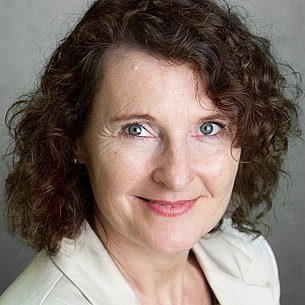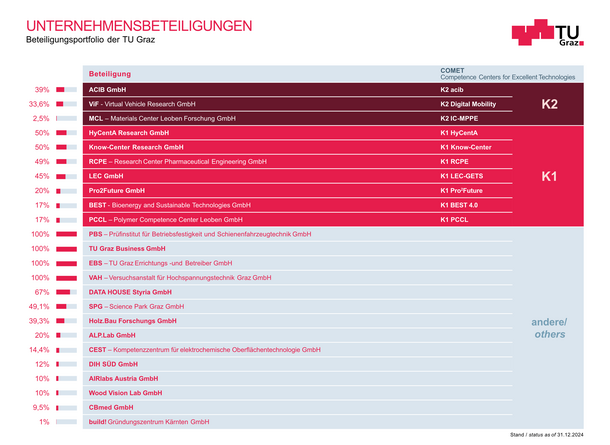At a Glance
- TU Graz holds shares in 22 companies.
- The portfolio companies employ over 1,500 staff members in high-quality positions.
- In 2023, TU Graz's shareholdings have generated an annual operating performance of around € 152 million.
Date: 31.12.2023

TU Graz promotes networking between science and industry at various levels - through projects, long-term cooperation and investments in companies or competence centres. We are joining forces to fuel the engine of innovation and increase the visibility of science in society.
Contact
Shareholdings and Risk Management
Mandellstraße 5, ground floor
8010 Graz
beteiligungen@tugraz.at
Area Map

